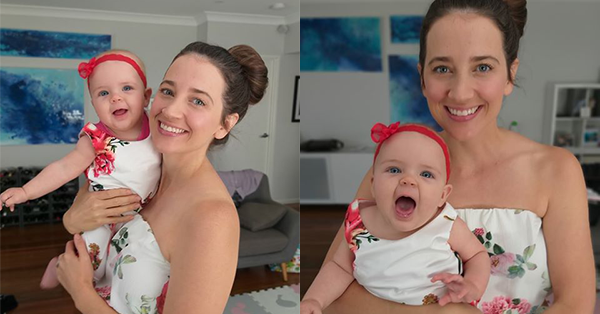, Bridge Magazine , Personal Stories

Amy, 31, found that the pelvic pain she was experiencing after the birth of her daughter didn’t go away. She was diagnosed with pelvic floor dysfunction and bladder and bowel (rectocele) prolapse. She shared her story with Bridge readers.
Amy: I never thought pooing would be something that I have to put so much time and thought into every day. My prolapse means one of the things I struggle with is passing bowel motions. To help, I eat a high-fibre diet, put my feet up on a stool when on the toilet and have even had Botox to successfully relax my sphincter muscle.
I found it really challenging to accept my prolapse and bowel problems because just a few months earlier, I wasn’t even aware they could happen. My moment of acceptance finally came after I went to a talk at a local women’s health clinic in 2019.
The presentation had speakers from the Continence Foundation of Australia, a physiotherapist and a nutritionist. I put my hand up to ask a question and I think the physio clued on that I was experiencing the problems she was talking about. She said she’d speak privately with me, and so afterwards I went into a room and just burst into tears. It was the first time I’d actually had a chat to someone who was sharing strategies to manage. If I had tried to talk to someone else I imagine they’d be horrified, but the presenters made me feel comfortable.
To be honest, my problems didn’t necessarily get better straight away, but it felt better because I knew I wasn’t the only one having issues. I tried to focus on everything I could still do. I went from feeling quite down and defeated, to as okay as I could be. That was only because of feeling less alone on the day of the presentation.
Since last year, I’ve had significant improvement. I’m maintaining all the good toileting habits and pelvic floor exercises with a physio, but also staying connected and talking with others. I joined an online support group for women with prolapse and saw a psychologist working in women’s health. The psychologist has helped me accept my new norm and provided me with strategies to move forward, so I’m not stuck in the place of fear and anxiety that would come with bowel motions and sex.
This story was first published in Bridge magazine. Subscribe to Bridge online.

